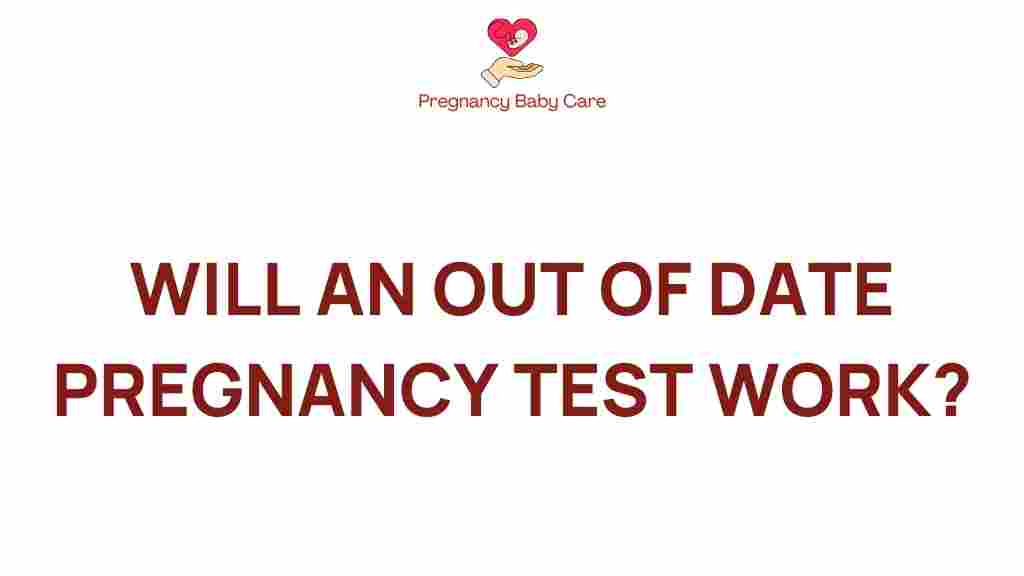Can an Expired Pregnancy Test Still Deliver Accurate Results?
When it comes to confirming a potential pregnancy, many individuals turn to home pregnancy tests for their convenience and privacy. However, a question that often arises is whether an expired pregnancy test can still deliver accurate results. In this article, we will explore the reliability and accuracy of expired tests, the importance of checking expiration dates, and the methods used in pregnancy testing.
Understanding Pregnancy Tests
Pregnancy tests work by detecting the hormone human chorionic gonadotropin (hCG), which is produced shortly after a fertilized egg attaches to the uterine lining. Home pregnancy tests are designed to provide quick results, but their effectiveness can be influenced by several factors, including the test’s expiration date.
The Importance of Expiration Dates
Expiration dates on pregnancy tests are crucial for ensuring their effectiveness. Manufacturers set these dates based on extensive testing, and using a test beyond this date could lead to:
- Reduced accuracy: The chemical components may degrade over time, leading to false negatives or positives.
- Inconsistent results: An expired test may not function as intended, creating confusion for the user.
How Accurate is an Expired Pregnancy Test?
While some individuals may wonder if an expired pregnancy test can still provide accurate results, the consensus among health professionals is that it is not advisable to rely on them. The accuracy of a pregnancy test typically stands around 97% when used correctly and within the expiration date. However, using an expired test can significantly decrease this reliability. Here’s what you need to consider:
- Degradation of chemicals: The test’s ability to detect hCG may diminish, affecting the sensitivity of the test.
- Environmental factors: Exposure to heat, moisture, and light can further deteriorate the components of the test.
Testing Methods: How Home Pregnancy Tests Work
Home pregnancy tests are designed for ease of use. Here’s a typical step-by-step process on how to use these tests:
- Read the instructions: Always start by carefully reading the instructions provided in the test kit.
- Collect a urine sample: Use the first morning urine, as it typically contains the highest concentration of hCG.
- Use the test: Either dip the test strip into the urine or apply a few drops of urine onto the testing area, depending on the testing method.
- Wait for results: Allow the test to process for the specified time—usually a few minutes.
- Read the results: Check the test window for the presence of lines or symbols indicating a positive or negative result.
What to Do if Your Test is Expired?
If you find yourself with an expired pregnancy test, it’s best to refrain from using it. Instead, consider the following steps:
- Purchase a new test: Invest in a reliable, in-date home pregnancy test for the most accurate results.
- Consult a healthcare professional: If you suspect pregnancy, it’s always a good idea to discuss with a doctor, who can provide a more sensitive test or a blood test.
Troubleshooting Common Issues with Home Pregnancy Tests
Even when using a valid home pregnancy test, individuals may encounter issues that affect accuracy. Here are some common troubleshooting tips:
- Test too early: Testing before a missed period can lead to false negatives as hCG levels may not be detectable yet.
- Incorrect usage: Always follow the instructions carefully to avoid mistakes that can affect results.
- Expired test: As discussed, using an expired test can compromise reliability.
- Medications: Certain medications may interfere with test results. Consult your doctor if you are uncertain.
When to Take a Pregnancy Test
Timing is crucial when it comes to taking a pregnancy test. The best time to take a home pregnancy test is:
- After a missed period: Most tests are designed to be accurate when taken after the first day of a missed period.
- In the morning: First-morning urine contains the highest concentration of hCG, improving accuracy.
Conclusion
In summary, while it may be tempting to use an expired pregnancy test, the risks associated with inaccurate results far outweigh the convenience. The accuracy and reliability of home pregnancy tests are vital for making informed health decisions. It’s always best to use a test that is within its expiration date and to consult with a healthcare provider for further confirmation and guidance. For more detailed information on pregnancy tests and related health matters, visit this health resource.
To delve deeper into the topic of pregnancy and testing methods, consider exploring this informative article.
This article is in the category Pregnancy and created by PregnancyBabyCare Team
